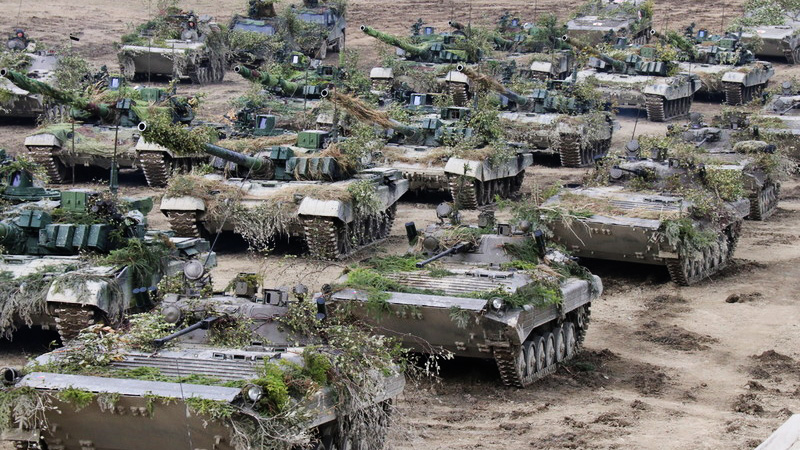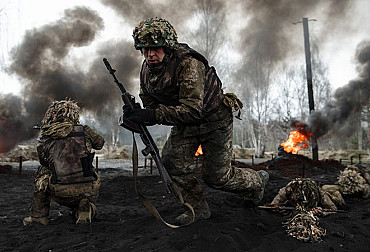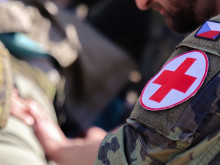Jana Černochová: Politicians must not treat the Army as a stepmother treats a stepchild
There have been more questions than answers since the last meeting of the Defense Committee. And it is not just about the evergreen of the last 4 months, ie returning 5 billion crowns to the budget of the Ministry of Defense. It is about the general speed of tenders, the ability to fulfill Alliance obligations, modernize the Army so that it is able to successfully face potential threats, etc. We therefore asked the chairwoman of the Committee, MP Jana Černochová (ODS), for her opinion on the above mentioned topics:

Picture: Jana Černochová (ODS), Chairwoman of the Defense Committee | CC BY-NC-ND
1) Madam Chairwoman, following the recent 43rd meeting of the Defense Committee, I have a simple question: Do you believe in the return of 5 billion to the budget of the Ministry of Defense, resp. will the purchase of IFVs be carried out at all according to the ongoing tender?
It's not even about what I believe, or I don't believe, but rather what the undignified theater around the (non)return of money to the Army, taken from it as a result of the Communist blackmail, shows and what it can mean. So far, it only shows that the word of the Prime Minister and members of the Government cannot be trusted, which is very sad news for citizens and uniformed forces. And if the five billion crowns are not returned by the end of March, it means that the modernization of the Army will be jeopardized, on which we all agree across the political spectrum, especially the project of tracked IFVs. The representatives of the Ministry talked about this at the last meeting of the Defense Committee.
In addition, it will call into question the planned growth of the military budget in the coming years, and thus the planned modernization, and we will fall again in international comparison, and the fulfillment of our Alliance commitment will be illusory. According to the Secretary General's Annual Report for NATO published a few days ago, due to the growing budget, we have moved up to seventh place from the end among the Allies, which is better than the year before, but still insufficient. I hope that the Government will live up to its promises to the Army and our Allies, and I refuse to accept that this would not happen. But the fact that today the Chamber of Deputies, of course again mainly thanks to the Communists, refused to talk about my proposal to return funds to the budget of the Ministry of Defense and the impact on the Czech Republic's defense in the event of non-return, says something about the Government's approach to our defense.
2) In the resolution of the committee on this, it was voted that in case of non-return of 5 billion crowns to the budget of the Ministry of Defense, the Government jeopardizes the security of the state. The Government is accountable to the Chamber of Deputies. Can the House continue to work with this resolution?
Yes, the House can work with that, it can bind the Government, it can make budget transfers for next year when it is approved, after all, we are a parliamentary democracy, not a kind of executive democracy. However, a majority must always be found in the Chamber of Deputies for any such proposal, and if it is not found, it cannot pass, even if the ODS and its partners thaught that the procedure of the majority was bad. That is democracy. But I am not giving up and I will continue to seek the majority to support our Army, just as I did today! (at the last meeting of the Defense Committee - author's note)
3) Why, in your opinion, are the other countries of the Visegrad Group proceeding more effectively in this selection?
For two reasons. First of all, we tend to keep talking, which prolongs everything, and when a decision is approaching, it usually begins to be questioned under the guise of whether it is not expensive, corruption is indicated, and so on. This, of course, complicates the choice, because no one wants to be investigated for years, dragged by the media like a criminal, and when he is released after years, it doesn't even appear anywhere. And this is how we basically spent our years of abundance. And secondly, we know how to entangle the acquisition process so perfectly that we constantly shoot ourselves in our own leg - everyone has to comment on everything, decisions are made through a large number of people and various bodies, and so on. In the case of strategic contracts, it is always a political decision, a political responsibility, and it cannot be avoided.
This is beautiful to see in Poland, Hungary and Slovakia. The user, ie the Army, determines what it needs and the civilian part of the Ministry of Defense, or in the case of strategic projects, the Government, says how it will proceed procedurally and what it will be like and a contract can be concluded. We must realize that the purchase of strategic military systems is not just a matter for the military user, who, of course, must define what he wants. It is also reflected in the foreign policy area, because it creates a certain dependence for the decades ahead, thus supporting relations with other countries and the like. And last but not least, of course, it blends into domestic politics, especially finance, because as a politician you always face considerations such as why we buy Infantry Fighting Vehicles when we need butter or vaccines, or to raise pensions… Put what you want. That is why it must always be a political decision and political responsibility, and it is impossible to run away from it. You can never be grateful to everyone. Moreover, in times of abundance, few believe that investing in defense is no less important than investing in other areas.
4) What is your opinion on the implementation of purchases of equipment using the G-G (government-government) method?
I do not exclude any type of contracting, including the ones outside the scope of the Public Procurement Act. However, two preconditions must be met. Firstly, transparency, ie from the beginning a clear setting of procedural and system rules, their observance, the possibility of their control and so on. Second, a clear justification of the need and of the procedure that does not change over time. But you are right that the government-government procedure, unlike the others, is a bit specific, because it also has a direct overlap with foreign policy, and after all, that is why it must always be a matter for the entire government and not just the Ministry of Defense or the Ministry of Foreign Affairs. So not automatically, but in justified cases, I support the government-government approach.
5) Another problem is the process of purchasing new L-39NG subsonic aircraft for the needs of Army training, or maintaining pilot training in the Czech Republic. Can the Defense Committee contribute to a quicker solution?
We discuss this topic repeatedly in the Committee. Our position is clear and consistent. It is necessary to provide military training ideally through the LOM state enterprise. But the financing of the project, the decision to acquire aircraft and the like, it is a matter of decision of the civilian leadership of the Ministry of Defense, the Army and the state enterprise. We can do the utmost to support the Ministry's efforts or express our disagreement with them, as we have done as a Committee in the case of the schedule for tracked Infantry Fighting Vehicles.
6) In your opinion, is the Czech Army combat-ready through the perspective of ongoing tenders?
The Army of the Czech Republic is, of course, combat-ready and proves it every day in foreign operations, but also in deployments in our territory and in exercises. The question is not whether it is combat-ready or not. The qualitative and quantitative aspects of its combat capability are important. For example, how long a battalion, a regiment or a brigade in some type of conflict is sustainable with its own logistics? What stocks of ammunition and spare parts do we have? What stocks do we have in general in case of crisis? How many people can be deployed in the longer term and with what equipment? These are the key issues that make armies strong or weak. It is always necessary to ask specifically. In any case, if we treat the Army's budget in a stepmother’s way, not only in terms of its amount, but also in terms of stability, then we can easily get into a situation where we are left with just a torso of the Army. Then we may have combat-ready small tactical units, but as a whole it will not work.

Picture: If we treat the Army's budget in a stepmother’s way, not only in terms of its amount, but also in terms of stability, then we can easily get into a situation where we are left with just a torso of the Army. Then we may have combat-ready small tactical units, but as a whole it will not work. (illustration photo) Ministry of Defense of the Czech Republic





















